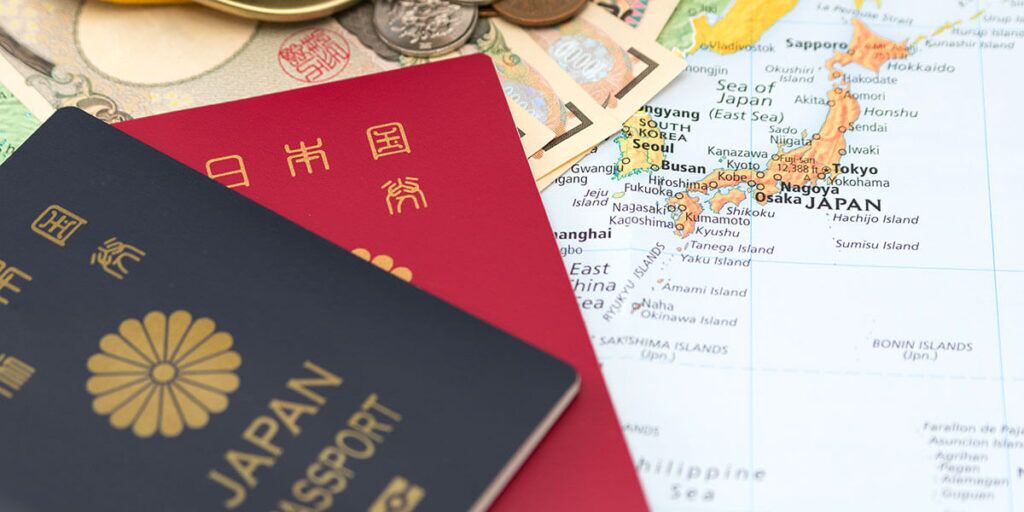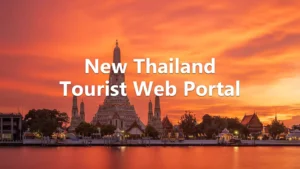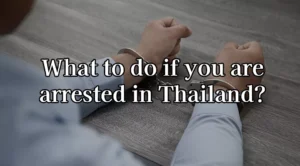(Updated last – August 5, 2022)
After all the hard work you’ve done in the past days, months, and years, you deserve time off. You deserve a holiday. And as the restrictions of the pandemic ease, you deserve to travel.
Konnichiwa, where do you plan to travel? Thailand is a great choice right now; the weather is wonderful and offers a diversity of experiences for Japanese jet-setters.
From July 1, 2022, Thailand has removed many of its travel restrictions and entry requirements for Japanese citizens.
These are the major changes that will affect travelers from Japan:
- Foreigners do not need to show proof of Covid Insurance.
- All mandatory hotel quarantine has been removed.
- Thailand Pass is no longer required for Japanese Citizens travelers entering Thailand.
- Vaccinated travelers do not need to provide proof of vaccination before arriving.
- Unvaccinated travelers (including children traveling with unvaccinated parents) need to complete an RT-PCR or Professional Antigen Test (Pro-ATK) test 72 hours before departing for Thailand. Proof does not need to be uploaded before traveling.
- Airlines and Thai Immigration will do random checks to confirm travelers meet Covid prevention requirements (vaccination certificate or Covid test).
- Wearing masks is no longer compulsory.
- The TM6 arrival card has been temporarily removed when entering Thailand.
Documents for Travel to Thailand in July 2022
- Passport
- Visa (if required)
- Travel Insurance
- Flight Itinerary
- Hotel booking
- Vaccination record (if vaccinated)
- COVID-19 test result (if unvaccinated)
Correct documents will speed up the entry screening to Thailand.
Easy Steps for Entering Thailand from Japan in 2022
Apply for a Thai Visa
Japan – a Visa Exempt country
Japanese jet-setters can travel to Thailand without a visa as long as it is for the purpose of tourism. They may stay for a maximum of 30 days through the Visa Exemption Program. A Japanese citizen can extend their permit to stay for a further 30 days at any local immigration office.
If you want to stay in Thailand longer than the Visa Exemption allows, or are traveling for a purpose other than tourism, Siam Legal International law firm offers various Thailand Visa services for travelers from Japan. You may check our services through our website at: https://www.siam-legal.com/legal_services/thailand-visa-services.php
Long Term Visas for the Japanese
Tourist Visa and Special Tourist Visa (STV)
Japanese citizens may apply for a Tourist Visa from the Thai embassy or consulate. There is the normal 60-day tourist visa that can be extended for additional 30 days, and the 90-day Special Tourist Visa (STV), which allows two 90-day visa extensions at the local immigration office. There are certain requirements needed for the STV, but it allows a visitor to stay in Thailand for a potential 9 months. The STV will be available until September 2022.
Thai Elite Visa
If you wish to make Thailand easily accessible for many years to come or are perhaps thinking of relocating permanently, it is worth having a look at the Thailand Elite Visa.
The Thai Elite Visa allows Japanese citizens to live in Thailand for 5, 10, or even 20 years. Thai Elite members do not need to worry about some of the eligibility criteria needed when applying for other long-term visas.
The Thai Elite visa is exclusive and offers a host of benefits to holders. If you want to enjoy “Thai life” for the long term, you can read more about the Thailand Elite Visa.
Non-Immigrant Visa
Foreigners may also apply for a wide range of non-immigrant visas:
- Non-immigrant B Visa – for conducting business or employment
- Non-immigrant O visa – for visiting Thai spouse and family
- Non-immigrant ED visa – for students of recognized institutions in Thailand and their Parents or Legal guardian
- Non-immigrant O retirement visa – for those who wish to retire in Thailand
- Non-immigrant OA and OX visa – for those who wish to obtain a Thailand retirement visa for a long stay (it differs from type O visa)
The above visas can be organized with a local Thai Embassy or Consulate in Japan. The paperwork can be quite involved, but there are companies that can help.
Siam Legal International is a reputable company in Thailand that has offered visa assistance to Indians for years. They are well versed in Thai immigration policies and processes. If you would like to streamline your long-term stay in Thailand, it is worth contacting them.
To apply for a visa of more than 30 days, please download this visa application form, fill in the necessary details and make an appointment. Applications without reservations are not accepted.
You can submit the visa applications at the Royal Thai Embassy and Consulates located in Japan:
- Royal Thai Embassy, Tokyo located at 3-14-6, Kami-Osaki, Shinagawa-ku, Tokyo 141-0021
- Royal Thai Consulate-General, Osaka located at 〒541-0056 Osaka, Chuo Ward, Kyutaro Machi, 1 Chome−9−16 バンコック銀行ビル4階
- Royal Thai Consulate-General, Fukuoka located at 2nd Floor Dai Ichi Myojo, 4-1-37, Tenjin, Chuo-ku, Fukuoka-shi, Fukuoka 810-0001
For inquiries about visa applications, you can contact 03-5789-2433 or reach them by sending them an email through [email protected].
Vaccination status and entering Thailand
From July 1, 2022, a Thailand Pass application is no longer required. Citizens from Japan will be able to enter the country one of two ways.
- Vaccinated Travelers – Vaccinated Japanese travelers do not need to complete any Covid tests before leaving Japan. They will need to have a copy of their vaccination certificate with them. Children under 18 who are traveling with vaccinated parents do not need to complete any RT-PCR or Pro-ATK test before departing.
- Unvaccinated Travelers – Before coming to Thailand, unvaccinated travelers will need to complete an RT-PCR or Professional Antigen (Pro-ATK) test through a clinic or medical professional. The test result must be issued within 72 hours before departing Japan.
An ATK (RAT) home test is not acceptable. Children under 18 who are traveling with unvaccinated parents also need to complete a test.
Airlines and Immigration will conduct random checks of passengers to confirm Covid requirements are met. It is best to have your Vaccination or Covid test Certificate available to show.
Book your Flight to Thailand
Fly from Japan to Thailand now! Airlines with available flights from Japan to Thailand are listed below:
- JAL (Japan Airlines)
- Thai Airways
- All Nippon Airways (ANA)
- Singapore Airlines
- Hong Kong Express
You can land at any international airport in Thailand and transit to other areas right away. There are no longer any “sealed” flights, though domestic flights may ask to see a vaccination certificate or test result before boarding. If you are traveling domestically, ATK self-tests are available at airports, pharmacies, and convenience stores.
Most international airlines follow the rules of the arrival country. If you are transiting through another country, it is best to check with the airline if you need to complete any tests for that country.
Book a Hotel
Vaccinated travelers or unvaccinated travelers who complete a 72-hour pre-departure RT-PCR/Pro-ATK test are welcome to book any accommodation. There are no quarantine requirements. SHA+ quarantine packages have been removed from most booking sites.
If you see a “Quarantine Package” listed, you do not need to choose it.
To find and compare the best hotels available in Thailand, visit Agoda. They allow free booking and cancellation, confirm bookings with hotels and their web page is easy to navigate and compare hotels.
You need to enter an address when traveling to Thailand. The accommodation can be a hotel, home, or a friend’s address.
Organize your Travel Insurance
If you are a foreigner, you should purchase a Travel Insurance policy. Though it is no longer an entry requirement, responsible travelers know the benefits of having insurance while traveling abroad.
Travel Insurance is one of those things that is better to have and not need than need and not have. Travel insurance doesn’t just cover Covid. Comprehensive travel insurance will also cover:
- Medical emergencies
- Personal injury & accidents
- Missed or delayed flights
- Damage to belongings
- Loss of luggage
The most important thing to know about insurance is that foreign travelers are not eligible for any form of free medical care in Thailand. No matter the circumstance, if a Japanese citizen needs medical attention, they will need to pay for it. Depending on the severity, this could amount to thousands of dollars in out-of-pocket expenses.
There are multiple reasons to protect yourself when traveling. Many visitors to Thailand choose AXA Insurance Thailand. It is a trusted company that offers comprehensive insurance to travelers from around the world. Their policies are straightforward with good coverage.
Some advantages to AXA Insurance are:
- Recognized and trusted by Thai authorities and medical facilities.
- Easy to apply online and approved in minutes.
- Competitive pricing and cover.
- Has no 14-day waiting period and covers Covid-related incidents, including asymptomatic cases.
- Provides customers with a convenient 1-Page Certificate of insurance. This certificate contains all relevant information needed by medical professionals or if making a claim.
To see the cover offered and organize your insurance to Thailand in minutes. Visit AXA Thailand.
Arriving in Thailand – Best Practices
So what can you expect when landing in Thailand? Here are a few things that will help you enjoy your trip and show respect to local Thai people.
Wearing Masks
From July 1st, masks are no longer compulsory but still recommended when in public places. You see that many Thai people (and visitors) still wear masks when out and about. It is recommended to wear a mask when visiting restaurants or public venues. You will not get in trouble if you don’t wear a mask, but it is a case of “do as the locals do”. It is about respect and consideration.
TM6 Arrival Cards
The Thai government has temporarily removed the need for visitors to complete the blue arrival card known as TM6. Their aim is to ease congestion at airports and remove another form that holiday makers need to complete. This initiative is in a testing phase, but it is hoped that the removal of TM6 will be successful and the change will become permanent.
Paperwork to Prepare
Though Thailand Pass is removed, and travelers do not need to provide proof before entry, it is best to prepare a few documents before arriving.
- Certificate of Insurance
- Vaccination certificate (vaccinated travelers)
- 72-hour RT-PCR or Pro-ATK test result (unvaccinated)
- Covid-19 recovery certificate (if previously tested positive)
This will speed up your processing time before leaving your country, or if asked to provide vaccination or testing proof in a random check. These documents can be presented in digital form, but airlines, Immigration, and Health Officers will appreciate the extra effort if you print them.
Following the above advice will ensure you have a smooth trip to Thailand and can enjoy a few weeks of well-deserved vacation in the tropics.










































